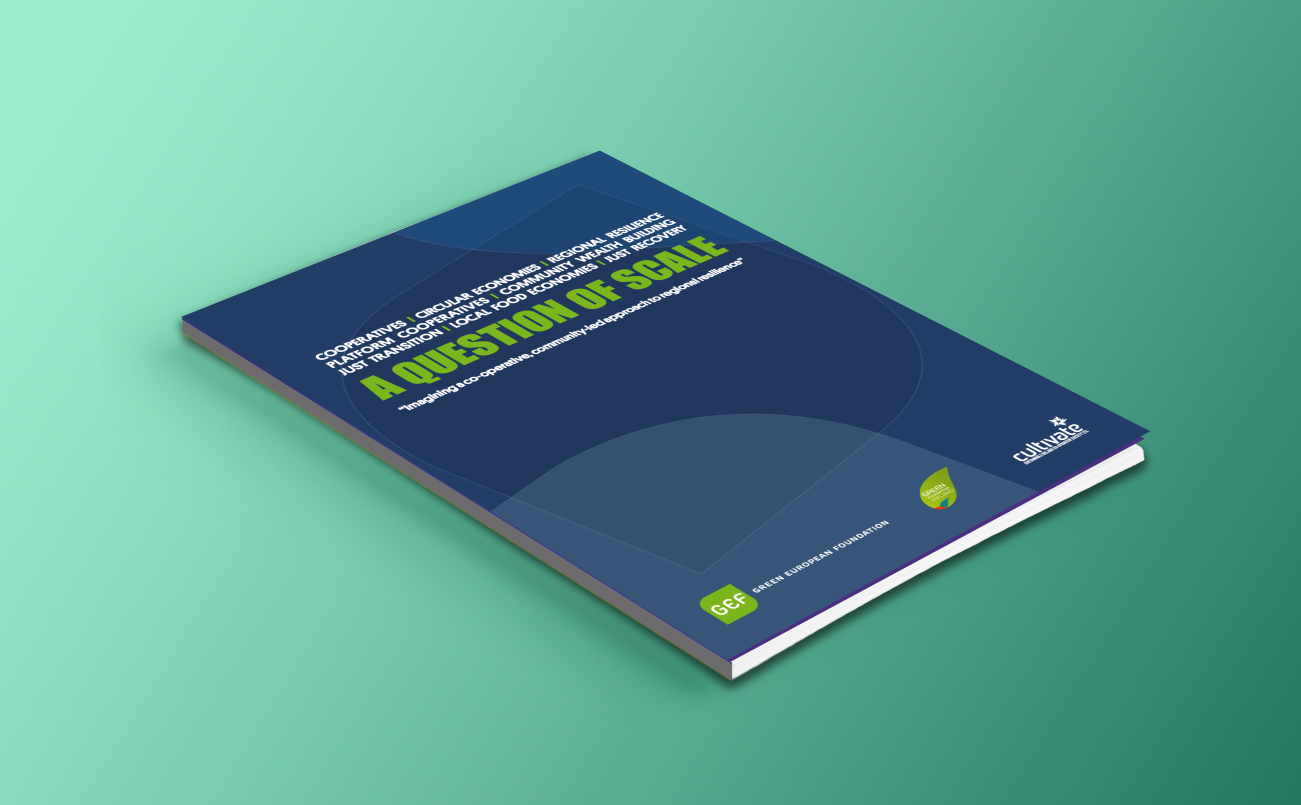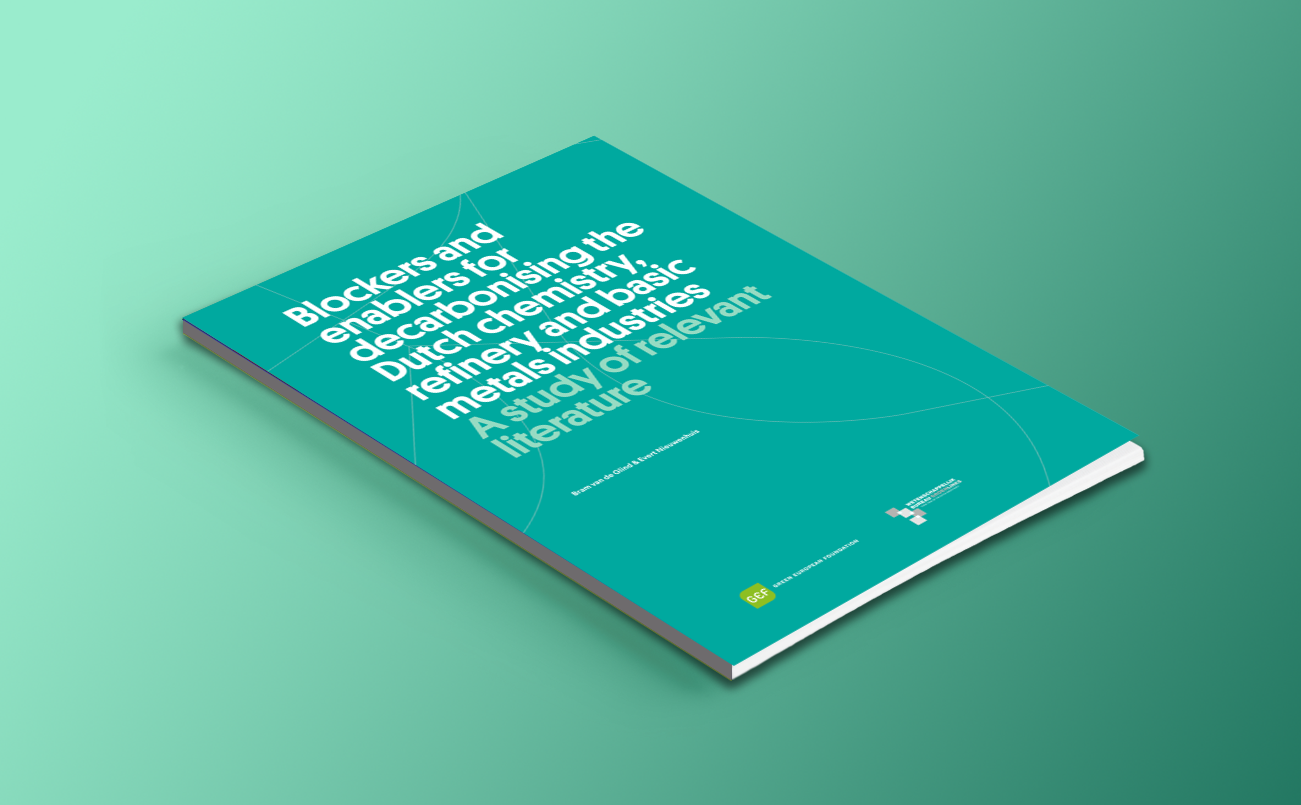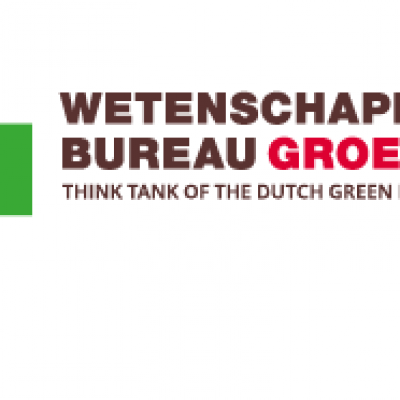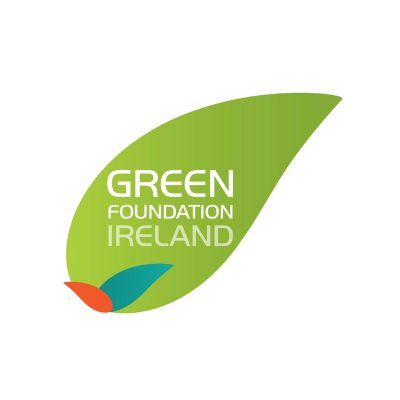
This transnational project, building on the expertise and networks built since its launch in 2018, aims to bring together partners across the EU to widen policy ambition on EU infrastructure spending and investment rules in light of the climate emergency and highlight the scale of the challenge. The work of the project will identify the key enablers and blockers in order to formulate strategies to stop those actors of the EU and global economy from blocking the transition to limit climate change to 1.5°C.
In 2020 the project partners explored the challenge to decarbonise the ‘harder to reach’ sectors, such as the chemistry, basic metals and refinery industries and international trade, to inform the implications of an EU-wide climate emergency and the European Commission’s proposal for a Green Deal.
This work forms part of a wider project led by the Green European Foundation involving Green House Think Tank in the UK, Wetenschappelijk Bureau Groenlinks in the Netherlands and Green Foundation Ireland.
Event: Achieving zero carbon trade, investment and industry
The Green European Foundation together with the partner Green House Think Tank hosted an online conference to share ideas on how to break through the obstacles currently preventing us reaching zero carbon goals – and what new policies could enable us to meet zero carbon goals. With speakers from the Netherlands and Ireland, panel discussions, breakout sessions, a political panel, together we explored what a climate emergency economy could look like.
Project Publications
Trade and Investment Requirements for Zero Carbon
Radical changes are needed in the way the UK economy functions if we are to meet the demands of the climate emergency. This report analyses UK trade data to explore the carbon impacts of the UK’s trade – and outlines how trade needs to be smaller, with shorter supply chains and slower transport. It introduces Green House’s new ‘Blockers and Enablers’ toolkit to aid policymakers to shift trade and infrastructure choices from global growth to facing up to the climate emergency.

This report explores how incompatible our society’s current and planned infrastructure is with the rapid decarbonisation of the UK economy needed to deliver on the climate
emergency. It focuses on three key sectors: freight transport, aviation and steel, and considers what changes are required to bring these into line with zero carbon goals, using the ‘blockers and enablers’ toolkit introduced in Green House’s August 2020 report.
Expert Meeting Report – Green Industrial Policy
Our Dutch project partner Wetenschappelijk Bureau GroenLinks summary in english of expert round table event in May 2020. This event looked at how to transform the dutch industry towards being CO₂ neutral and 75 percent circular by 2040, and reaching complete circularity in 2050. Such an industry should contribute to broad prosperity and therefore respect planetary boundaries and create jobs, income and useful products.
This report is part of the transnational Climate Emergency Economy project, coordinated by the Green European Foundation. The project explores the challenge of decarbonising ‘harder to abate’ sectors, such as the chemistry, basic metals and refinery industries and international trade. WBGL, Green House Think Tank and Green Foundation Ireland each focus on a specific part of a climate emergency economy. This particular report was written by WBGL and focuses on Dutch energy-intensive industries.
Blockers & Enablers for decarbonizing the Dutch Energy Intensive Industry
The Green European Foundation, in cooperation with Green Foundation Ireland organised an online conference as part of the Climate Emergency Economy project. This work forms part of a wider project led by the GEF involving Green Foundation Ireland, Green House in the UK and the Scientific Bureau Groenlinks in the Netherlands. The work of the project is to identify the key enablers and blockers in order to formulate strategies to stop those actors of the EU and global economy from blocking the transition to limit climate change to 1.5°C.
A QUESTION OF SCALE: “Imagining a co-operative, community-led approach to regional resilience” (SCALE being the acronym for Supply Chains and Local Economies) “A Question of Scale” is a conversation in the context of global vulnerabilities and challenges – climate, pandemic, risks to supply chain, jobs, etc – that will… – Identify ‘Blockers & Enablers’ to a cooperative, community-led approach to regional resilience; – Secure local supply chains and strengthen regional economies; – Outline the benefits of regional economies (especially, but not limited to, the agri-food sector); – Encourage cooperative effort in local production for local need;
A Question of SCALE – Publication

A Question of SCALE: “Imagining a cooperative, community-led approach to regional resilience” (SCALE also being the acronym for Supply Chains and Local Economies).
The paper introduces and explores the potential of the Social and Solidarity economy, Doughnut Economics, Just Transition, The Commons, Community Wealth Building, Federated co-ops new co-operative approaches.
Question of Scale Framing Paper is available on the GEF website.
This paper is published by the Green European Foundation, with the support of Green Foundation Ireland and Cultivate. The publication has been realised with the financial support of the European Parliament. The European Parliament is not responsible for the content of this report.
A Podcast featuring some of the contributors to the Question of Scale Webinar and Framing Paper was recorded recorded as part of the GEF Climate Emergency Economy project.
00:00.00 – Introduction
Davie Philip – Cultivate/ Ecolise.eu, Ollie Moore – Cultivate/ ARC2020
00:02.18 – Resilience – A Guiding Principle for a Just Recovery & Transition
Dirk Holemans – GEF
00:08.10 – Climate Emergency Economy
Jonathan Essex – Green House, UK, Bram van de Glind – GroenLinks, Netherlands.
00:17.10 – Introducing Doughnut Economics
Dr. Carol Power – Centre for Co-Operative Studies at UCC
00:28.00 – Just Transitions & Community Wealth Building
Sinead Mercier, Sean McCabe – TASC
00:46.00 – Historical Perspectives on Cooperatives in Ireland
Tommy Simpson – GFI
00:53.50 – Cooperatives Now
Sam Toland – Solid Network, Aoife Hammond – Dublin Food Coop
Production – Eoin Campbell (JustMultimedia)
Music and Tech Support – Darren Flynn
Achieving zero carbon trade, investment and industry
How do we break through the obstacles currently preventing the UK reaching net zero carbon emissions? Natalie Bennett moderates as we hear about how to achieve a zero carbon future.


 Blockers and enablers for decarbonising the Dutch chemistry, refinery and basic metals industries – A study of relevant literature
Blockers and enablers for decarbonising the Dutch chemistry, refinery and basic metals industries – A study of relevant literature

